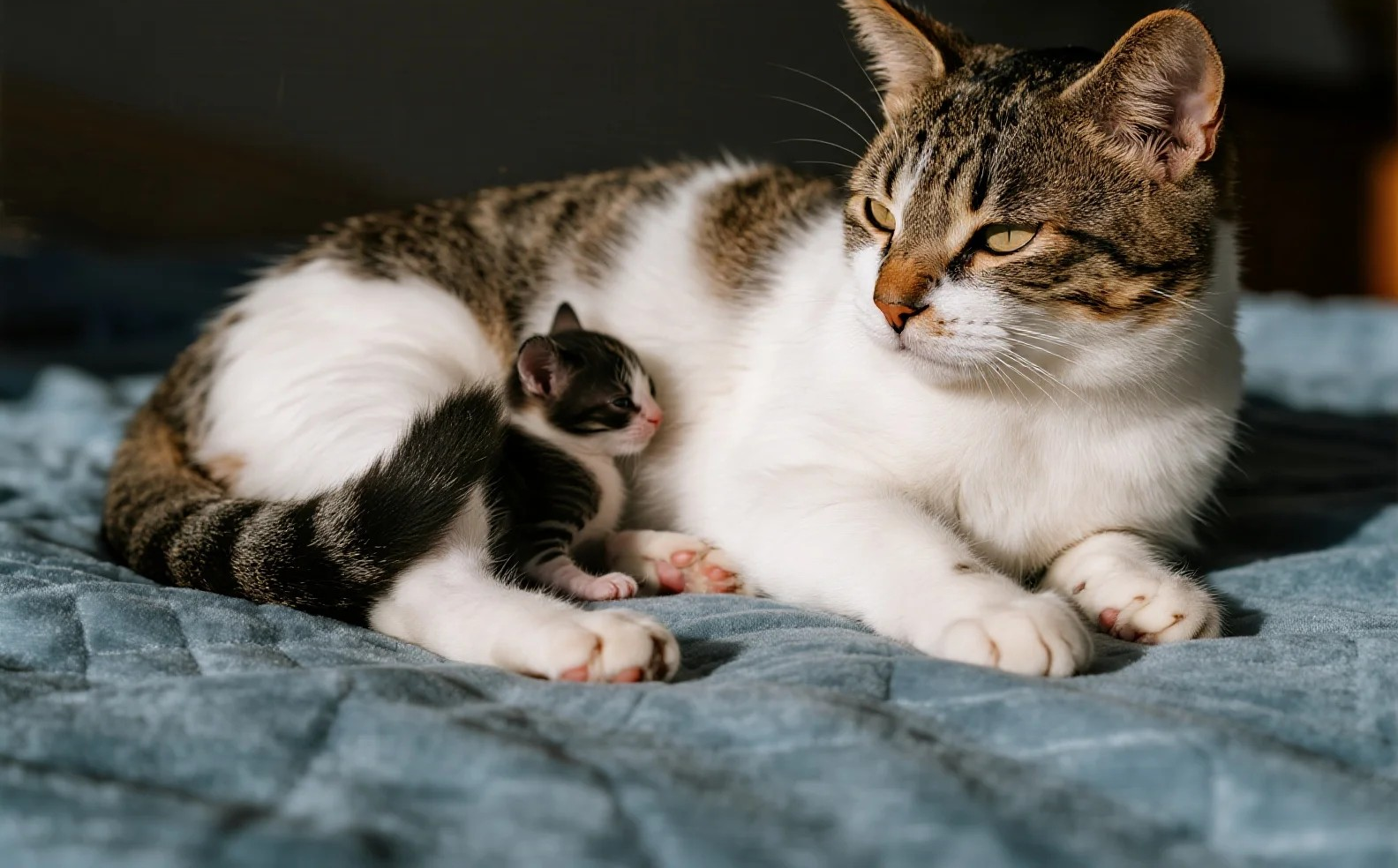If you suspect that your feline friend may be expecting, it’s essential to know the signs indicating she’s pregnant. Understanding feline pregnancy can help you provide the care and support she needs during this important time. Let’s explore the key indicators that will help you determine if your cat is pregnant and what to do next.
Understanding Feline Reproduction
Before we dive into the signs of pregnancy, it’s beneficial to understand a bit about feline reproduction. Cats usually go into heat (estrus) several times a year, which makes them more likely to conceive if they mate during this period. A cat’s gestation period typically lasts about 63-65 days.
Physical Changes
One of the most noticeable signs of pregnancy in cats is physical changes. You might observe the following alterations in her body:
Nipple Changes: One of the earliest signs of pregnancy is a change in your cat’s nipples. They may become enlarged and turn a darker shade of pink. By the second or third week of pregnancy, these changes are typically noticeable.
Weight Gain: As your cat progresses in her pregnancy, you may notice weight gain. While some cats can carry their kittens with minimal visible weight gain, others may gain several pounds. Look for a noticeable bulge in her abdomen, especially in the later stages of pregnancy.
- Decreased Activity: Pregnant cats often show a decrease in activity level as their bodies adjust to carrying the kittens. While some cats might still be playful, others may prefer to lounge around and rest.
Behavioral Changes
Pregnancy can also bring about several behavioral changes in your cat. Here are some indicators to watch for:
Increased Affection: Some cats may become more affectionate towards their owners during pregnancy. You might find her seeking more attention, head bunting, or curling up next to you more often.
Nesting Behavior: As your cat’s pregnancy progresses, she may start displaying nesting behavior, especially as she approaches her due date. This can involve seeking out cozy spots or gathering and arranging her belongings, such as your old clothes or blankets.
- Food Preferences: Early in her pregnancy, your cat may experience changes in her appetite. Some cats may want to eat more, while others could become pickier about their food. If you notice significant changes in her eating habits, it could indicate she’s expecting.
Monitoring for Signs of Distress
While most cat pregnancies progress smoothly, it’s crucial to be aware of signs that may indicate distress. Consult with your veterinarian if you notice:
Vomiting: Occasional vomiting can be normal due to hormonal changes; however, frequent or severe vomiting warrants a call to your vet.
Lethargy: If your cat seems excessively lethargic and unresponsive, it could be a sign that something is wrong.
- Bloody Discharge: Any abnormal discharge from your cat, especially if it is blood-colored, should be investigated immediately.
Vet Check-Up
If you suspect your cat is pregnant, scheduling a vet visit is a good idea. A veterinarian can confirm the pregnancy through abdominal palpation starting around the fourth week or through ultrasound, which can detect fetal heartbeats as early as three weeks into the pregnancy. Regular check-ups are vital to ensure both the mother and the kittens remain healthy.
Preparing for Kittens
If your cat is confirmed to be pregnant, prepare for the arrival of the kittens. Here are some steps to take:
Create a Safe Space: Set up a quiet and comfortable area for her to give birth, away from noise and disturbances. This could be a box lined with soft blankets in a secluded part of your home.
Nutrition: Ensure she has access to high-quality kitten food, which is richer in nutrients and will sustain her during pregnancy and lactation.
- Health and Hygiene: Keep her area clean and monitor her health closely. This includes regular grooming, especially as she may be less inclined to groom herself during pregnancy.
Conclusion
Recognizing the signs of pregnancy in your cat allows you to provide the appropriate care and support she needs. From changes in her body to new behaviors, every indication of pregnancy is a part of this exciting journey. Remember, consulting your veterinarian can help ensure a safe and healthy experience for both your cat and her future kittens. With the right care, you and your soon-to-be mother cat can navigate this beautiful phase together.
